Search
Remove Ads
Advertisement
Summary 
Loading AI-generated summary based on World History Encyclopedia articles ...
Search Results
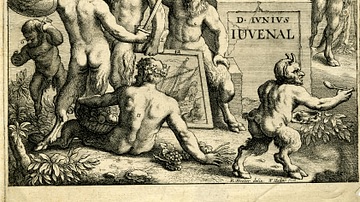
Definition
Juvenal
Decimus Junius Juvenalis (l. c. 55-138 CE), better known as Juvenal, was a Roman satirist. He wrote five books, containing 16 satires, each of which criticized a different element of Roman society, whether it was poor housing, the patron/client...

Image
Juvenal
Statue of Junius Juvenal on a pedestal lettered with his name, holding a scroll. Frontispiece to Robert Stapylton's Mores Hominum. The Manners of Men, Described in Sixteen Satyrs by Juvenal (London: 1660 CE). Etching after Robert Streeter...
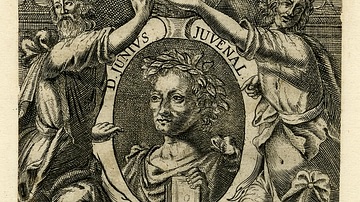
Image
Juvenal's Satires
Engraved title page to Robert Stapylton's translation of 'Juvenalls Satyrs' with a portrait of Juvenal (l. c. 55-138 CE) in the centre.
Print made by Thomas Rawlins, 1645-1670 CE.
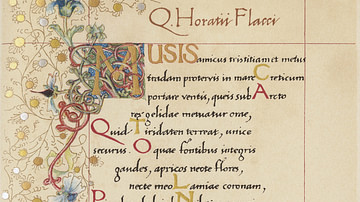
Definition
Roman Literature
The Roman Empire and its predecessor the Roman Republic produced an abundance of celebrated literature; poetry, comedies, dramas, histories, and philosophical tracts; the Romans avoided tragedies. Much of it survives to this day. However...
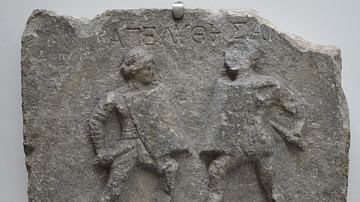
Article
Female Gladiators In Ancient Rome
Female gladiators in ancient Rome – referred to by modern-day scholars as gladiatrix – may have been uncommon but they did exist. Evidence suggests that a number of women participated in the public games of Rome even though this practice...
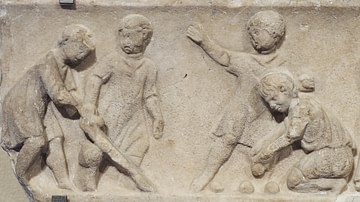
Article
Childhood in Ancient Rome
Freeborn Roman children, ingenuiae, born of Roman citizen parents lived a life that was dictated by the level of society into which they were born; a day in the life of a child from the lower level of society and one from the more affluent...

Article
Education for Girls in Ancient Rome
The upbringing and education of girls in ancient Rome are rarely addressed in ancient sources. A young Roman girl from an affluent family married very young, often in her mid-teens, and girls, according to tradition, were brought up solely...

Image
Artistic Reconstruction of Messalina
A recreation of the Roman empress Valeria Messalina (c. 20-22 CE-48 CE), wife of the emperor Claudius (r. 41-54 CE). Messalina's facial features are very loosely based on a combination of Roman portraits and artistic license. Messalina is...

Video
Roman Satire (In Our Time)
Melvyn Bragg and guests discuss Roman Satire. Much of Roman culture was a development of their rich inheritance from the Greeks. But satire was a form the Romans could claim to have invented. The grandfather of Roman satire, Ennius, was also...

Article
Legacy of the Ancient Romans
The legacy of the ancient Romans – from both the time of the Roman Republic (509-27 BCE) and the time of the Roman Empire (27 BCE - 476 CE) – exerted a significant influence on succeeding cultures and is still felt around the world in the...